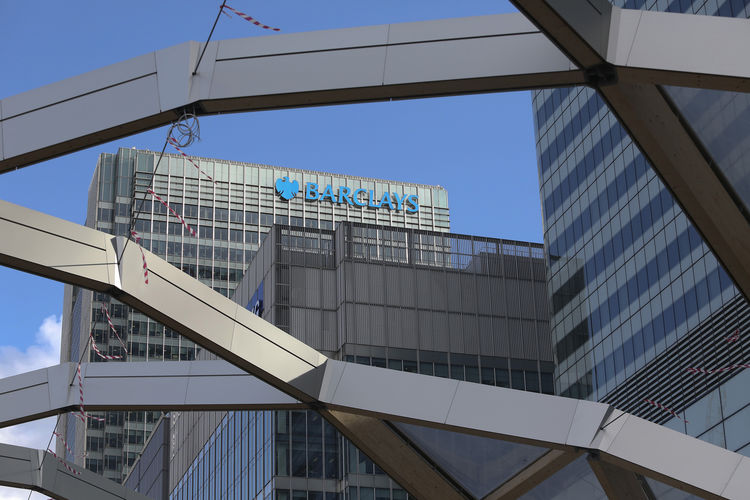Pound traders are expecting little respite from the currency’s volatility after U.K. Prime Minister David Cameron called a referendum on the nation’s European Union membership for June 23.
The pound jumped the most in more than two weeks against the dollar after Cameron finalized a deal with EU leaders on Britain’s relationship with the rest of the 28-nation bloc in the closing hours of trading in New York on Friday. Still, a measure of traders’ expectations for price swings in the pound against the euro during the next six months remained at the highest since 2011. The deal Cameron secured means he is recommending the U.K. should stay in the EU, he said on Saturday.
Although the announcement of the date removes one aspect of ambiguity for traders, they now face months of polls and campaigning that could boost volatility further. With traders already pushing back bets on the timing of a Bank of England interest-rate increase, the prospect of Britain leaving the world’s largest single market had been causing further concern, helping push down the pound against most of its Group-of-10 peers this year.
“The pound’s weakness is a product of uncertainty of the U.K.’s ongoing membership of the union, not the timing of the poll,” said David Page, a senior economist at AXA Investment Managers in London. “Weakness is likely to reflect any increased perception of the likelihood to leave and as such is likely to be a constant feature over the coming months.”
The pound climbed 0.5 percent to $1.4406 as of 5 p.m. New York time on Friday. While the currency is down 2.2 percent this year, it has rebounded from an almost seven-year low of $1.4080 reached in January.
“The pound is likely to bounce near term” as investors see the deal “as increasing the prospects of Britain voting to stay in,” said Mansoor Mohi-uddin, senior markets strategist in Singapore at Royal Bank of Scotland Group Plc. Still, “as we get closer towards June 23, investors are likely to become increasingly nervous,” he said.
Higher Volatility
Sterling added 0.2 percent to 77.29 pence per euro on Friday, paring its drop this year to 4.6 percent. Six-month implied volatility for the pound versus the euro, a measure of price swings based on options, was at 12.10 percent, the highest level since September 2011, based on closing prices.
The uncertainty over the vote hasn’t had the same impact on equities. While U.K. stock swings have increased this year, FTSE 100 Index implied volatility remains lower than for the euro area. And the weakening of the pound has actually helped the gaugeperform better than any other major market in the region. Even small- and mid-cap companies, deemed more at risk in a “Brexit” scenario, have fallen less than their European peers. Pictet Asset Management says U.K. stocks are not reflecting the true danger of an exit.
Goldman Sachs Group Inc. said earlier this month that if Britain quits the EU sterling could fall to $1.15-$1.20 — levels last since in 1985. HSBC Holdings Plc said in January that a forecast for a jump to $1.60 by year-end relied on the nation remaining in the 28-member club.
“The uncertainty will persist” into the vote, said Kit Juckes, a global strategist at Societe Generale SA in London. “Sterling was the weakest major last week and probably remains under pressure.”
Ministers’ Stance
Traders’ attention may now turn to the stance of ministers who, while given a free hand by Cameron to campaign against the government’s position, were asked not to announce their intentions until after the cabinet meeting.
Cameron was given a fillip on Saturday when Business Secretary Sajid Javid and Home Secretary Theresa May, both seen as wavering over which way to vote, threw their support behind the campaign to remain. Six ministers, including Justice Secretary Michael Gove, were later pictured at the headquarters of one of several groups campaigning to leave the EU.
The support of London Mayor Boris Johnson for either side may prove key to sterling, given his popularity with the British public, according Morgan Stanley. Should he choose to publicly back the exit campaign, “the pound should come under immediate pressure,” analysts led by Hans Redeker wrote in an e-mailed report Friday.
Eshe Nelson/Bloomberg




 Forex2 weeks ago
Forex2 weeks ago




 Naira2 weeks ago
Naira2 weeks ago
 Naira4 weeks ago
Naira4 weeks ago
 Company News4 weeks ago
Company News4 weeks ago
 Billionaire Watch1 week ago
Billionaire Watch1 week ago




 Naira2 weeks ago
Naira2 weeks ago




 Naira4 weeks ago
Naira4 weeks ago




 Naira1 week ago
Naira1 week ago


















